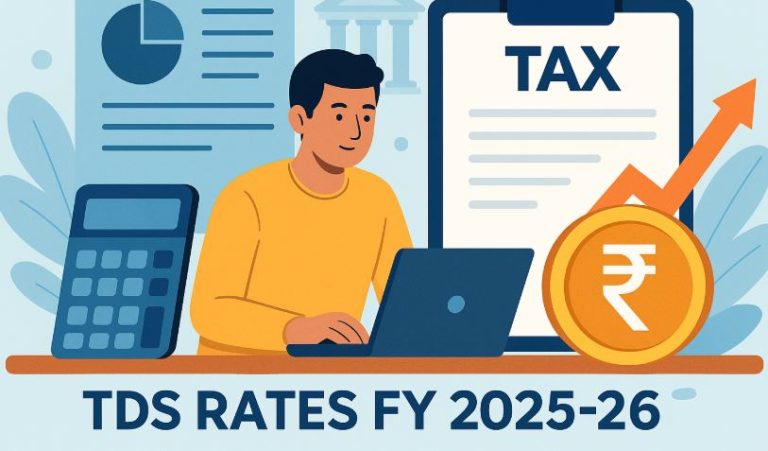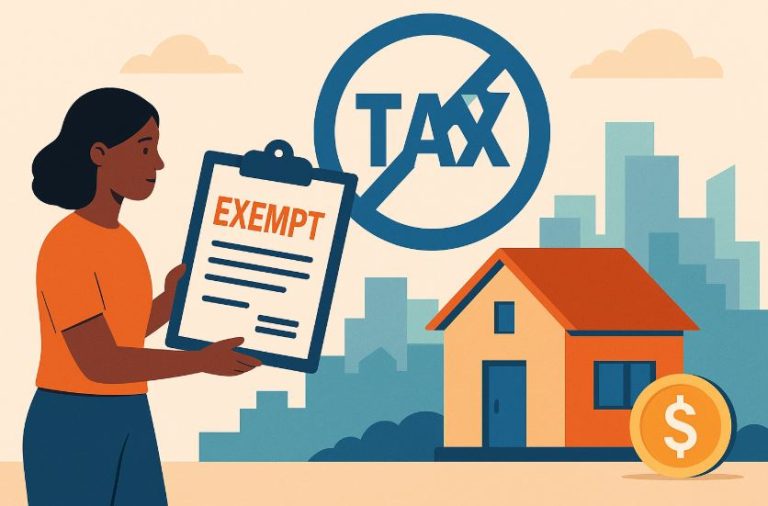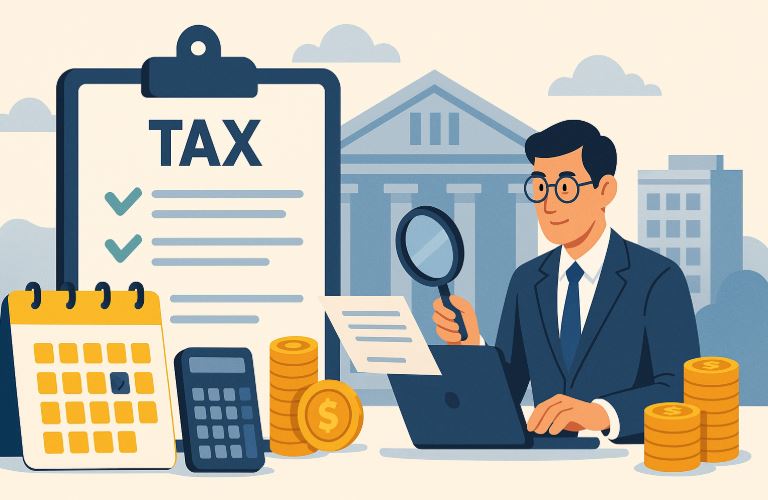Have you ever wondered why taxpayers need to pay taxes in advance before the financial year ends? Many individuals and businesses in India are required to pay advance tax in instalments to avoid interest and penalties.
This system ensures that the government receives tax revenue at regular intervals rather than in a lump sum at the end of the financial year.
Understanding advance tax payment due dates, calculation methods, penalties, and exemptions is crucial for ensuring compliance with the Income Tax Act.
Missing these deadlines can result in financial penalties, making it important to stay informed.
In this blog, we will explore everything about advance tax, including its meaning, eligibility, payment methods, deadlines, penalties for late payments, and how to claim refunds if you overpay.
What Is Advance Tax?

Advance tax is a prepaid income tax that taxpayers must pay in instalments if their total tax liability exceeds ₹10,000 in a financial year. Instead of paying the entire tax amount at the end of the year, taxpayers must make payments at specified intervals set by the Income Tax Department of India.
This system helps the government receive tax revenue throughout the year and reduces the burden on taxpayers by allowing them to pay in smaller instalments. It is also referred to as the pay-as-you-earn tax system.
Key Features of Advance Tax
- It applies to individuals, businesses, and professionals whose total tax liability exceeds ₹10,000.
- The tax is paid in four instalments throughout the financial year.
- Advance tax is applicable to salaried employees, freelancers, and businesses.
- If a taxpayer fails to pay advance tax on time, interest is charged under Section 234B and Section 234C of the Income Tax Act.
Who Needs to Pay Advance Tax?
Advance tax applies to a wide range of taxpayers in India. Understanding who is required to pay advance tax can help individuals and businesses avoid penalties and comply with tax regulations.
Taxpayers Liable for Advance Tax
- Salaried Individuals: If an individual has additional income from sources such as rent, capital gains, interest, or business profits, they must pay advance tax.
- Freelancers and Professionals: Independent professionals like doctors, lawyers, and consultants who earn above ₹10,000 in taxable income must pay advance tax.
- Businesses: All businesses, including sole proprietorships, partnerships, and companies, must pay advance tax if their tax liability exceeds ₹10,000.
- Senior Citizens: Individuals aged 60 years or above who do not have income from a business or profession are exempt from paying advance tax.
Failing to comply with advance tax payments can result in interest penalties, which is why it is essential to assess tax liability and make timely payments.
How to Calculate Advance Tax?

Calculating advance tax accurately is essential to avoid penalties and ensure compliance with tax laws. The calculation is based on estimated income for the financial year, and the tax amount is divided into instalments.
Steps to Calculate Advance Tax
- Estimate Your Total Income: Include salary, business income, rental income, capital gains, and other sources of taxable income.
- Subtract Deductions: Apply deductions available under Sections 80C to 80U of the Income Tax Act.
- Calculate Tax Liability: Use the applicable income tax slab rates to compute the tax liability.
- Subtract TDS (Tax Deducted at Source): Deduct TDS already deducted by employers or clients from your estimated tax liability.
- Determine Advance Tax Payable: If the tax payable exceeds ₹10,000 after TDS, divide the amount into instalments based on due dates.
Advance Tax Payment Due Date: When Should You Pay?
Advance tax payments are made in four instalments throughout the financial year as per the schedule provided by the Income Tax Department.
Advance Tax Due Dates for FY 2024-25
| Instalment | Due Date | Percentage of Total Tax Payable |
| 1st Instalment | 15th June | At least 15% of total tax liability |
| 2nd Instalment | 15th September | At least 45% of total tax liability |
| 3rd Instalment | 15th December | At least 75% of total tax liability |
| 4th Instalment | 15th March | 100% of total tax liability |
If the due date falls on a weekend or public holiday, the payment can be made on the next working day.
What Are the Penalties for Late Payment of Advance Tax?

If a taxpayer fails to pay advance tax on time, interest penalties are levied under Sections 234B and 234C of the Income Tax Act.
Interest Charges for Non-Payment or Late Payment:
- Section 234B: Interest at 1% per month if the total advance tax paid is less than 90% of the total tax liability.
- Section 234C: Interest at 1% per month for late payment of individual instalments.
To avoid these penalties, taxpayers should ensure that they pay advance tax before the due dates.
How to Pay Advance Tax Online?
The Income Tax Department allows taxpayers to pay advance tax online through the e-filing portal or authorised bank websites.
Steps to Pay Advance Tax Online
- Visit the Income Tax e-Filing portal or your bank’s online tax payment section.
- Select Challan 280 for advance tax payment.
- Enter your PAN details, assessment year, and payment type (Advance Tax).
- Calculate and enter the tax amount payable.
- Complete payment using net banking, debit card, or UPI.
- Save the challan receipt as proof of payment.
What Are the Exemptions and Deductions for Advance Tax?

Advance tax is not required in certain cases where specific exemptions and deductions apply under the Income Tax Act. These provisions help reduce the tax burden for eligible taxpayers.
Exemptions from Advance Tax
- Senior Citizens: Individuals aged 60 years or above who do not earn income from a business or profession are exempt from paying advance tax.
- Salaried Individuals: If an individual’s only source of income is salary, they are not required to pay advance tax separately, as their employer deducts Tax Deducted at Source (TDS) from their salary.
Deductions That Reduce Advance Tax Liability
- Tax-saving investments under Section 80C (e.g., PPF, ELSS, LIC premiums, NSC).
- Health insurance premiums under Section 80D.
- Donations to charitable organizations under Section 80G.
By claiming these deductions, taxpayers can lower their taxable income, thereby reducing or eliminating their advance tax liability.
Is Advance Tax Applicable to Salaried Employees?
Yes, salaried employees may be required to pay advance tax, but only if they have additional sources of income beyond their salary.
If a salaried person earns rental income, interest from fixed deposits, capital gains, or business profits, and their total tax liability exceeds ₹10,000 in a financial year (after adjusting TDS), they must pay advance tax.
However, if TDS deducted by the employer covers the full tax liability, then no advance tax payment is needed. It is important for salaried employees to assess their tax liability carefully and make advance tax payments if required.
What Happens If You Pay Excess Advance Tax?

If a taxpayer overpays advance tax, they are entitled to a tax refund from the Income Tax Department. This situation arises when the estimated tax liability was higher than the actual taxable income for the financial year.
The excess tax paid is refunded after the taxpayer files their income tax return (ITR). If the refund amount exceeds 10% of the total tax liability, the Income Tax Department provides 6% interest per annum on the refund amount under Section 244A.
How to Claim a Refund for Overpaid Advance Tax?
To claim a refund for excess advance tax paid, taxpayers must file their income tax return (ITR) before the due date. The refund request is automatically processed by the Income Tax Department based on the tax computation in the ITR.
Refunds are credited directly to the taxpayer’s bank account linked with their PAN. To avoid delays, ensure that bank details are updated and correct while filing the ITR.
If the refund is not received within the expected timeframe, taxpayers can check the refund status on the Income Tax e-Filing portal.
Conclusion
Advance tax is an important aspect of the Indian tax system that ensures taxpayers pay their dues in instalments rather than in one lump sum. Missing the advance tax payment due date can lead to penalties under Section 234B and 234C.
To avoid additional charges, taxpayers should calculate their tax liability accurately and make timely payments. By understanding advance tax rules, payment methods, and deadlines, taxpayers can ensure compliance and manage their tax liabilities efficiently.
FAQs
What is the minimum amount for advance tax payment?
Advance tax is applicable if the total tax liability exceeds ₹10,000 in a financial year.
Can I pay advance tax after the due date?
Yes, but interest penalties under Sections 234B and 234C will apply.
Is advance tax applicable to pensioners?
Pensioners with no business income are exempt from advance tax.
Can advance tax be paid in one instalment?
Yes, but it is recommended to pay in instalments as per due dates.
What happens if I do not pay advance tax?
Interest penalties will be charged, and the tax burden at year-end may be higher.
How do I check my advance tax payment status?
You can check the status on the Income Tax e-Filing portal under the tax payment section.
Can NRIs pay advance tax in India?
Yes, NRIs earning taxable income in India must pay advance tax if their tax liability exceeds ₹10,000.




